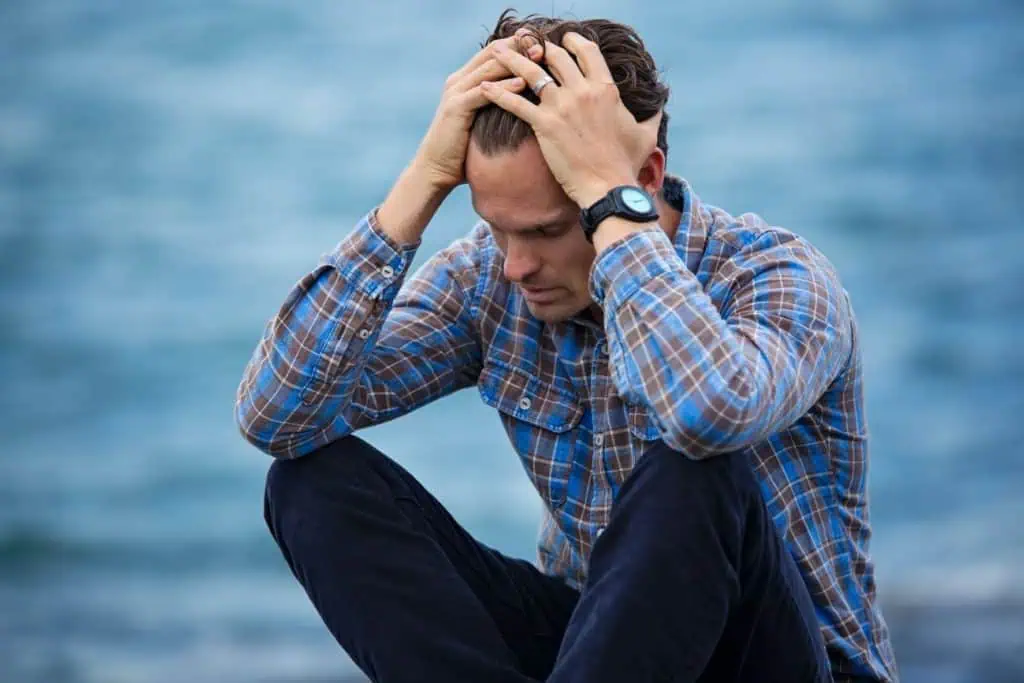If you or someone close to you is suffering from depression and anxiety due to the COVID-19 pandemic, you are not alone. Many individuals are grieving the death of loved ones. Some coronavirus survivors have developed serious health problems, while others have been unable to work and run their own businesses.
Listen In
Even those who did not experience a catastrophic loss had to endure months of disrupted schedules, postponed milestone events, and day-to-day logistical hassles. As a result, it’s no surprise that many people are lonely, frustrated, and vulnerable emotionally, physically, and economically.
We’ll go through the coronavirus and pandemic’s impact on anxiety and sadness, as well as what to look for and which treatment choices are accessible to assist you or someone you care about.
Does Coronavirus Infection Cause Depression or Anxiety?

Severe COVID-19 can be difficult to diagnose and deal with for patients. In addition to COVID-19-related organ damage and continuous symptoms, severe loss of physical, emotional, and even economic well-being can leave patients feeling extremely down and distressed.
Not only may one’s family be terrified of losing you to the ICU, but there are also several frightening factors that go with it. After intensive care, post-intensive care syndrome can induce debilitating, persistent worry and panic in those who do not receive treatment.
Researchers are studying the inflammatory responses caused by coronavirus infection and their impact on the brain. COVID-19 may produce physical changes that reduce mental abilities such as thinking, remembering, and reasoning.
COVID is a tough disease to treat, and it’s difficult to predict how different patients will respond to it. However, patients in the PACT group are receiving attention for a variety of issues. Anxiety, sadness, and altered mental function ranging from several months to 18 months have been observed among those in the PACT group.
Long-term prognosis is difficult to predict, but in the short-term, COVID-19 survivors have benefited from initial treatments, even those with persistent symptoms and bodily changes.
Many of the COVID-19 patients had been experiencing depression and anxiety even before the pandemic hit.
Ways to Cope with Depression and Anxiety During the Pandemic

Depression anxiety disorder is a serious condition, but both can be treated successfully. Here are four ways to enhance your mental health and help curb depressive disorders and generalized anxiety disorders.
- Make a habit of routine.
Many people’s days were unstructured and monotonous when the epidemic began, but that is changing. We’re rediscovering our normal pace and adopting a more regimented regimen. Unlike previously, we are more accustomed to working at home and are used to a specific school and job routines. Simple methods to regain one’s routine may help individuals who have been struggling with depression and anxiety.
- Remember to care for yourself.
Mind-body communication is essential. Take care of yourself by eating appropriately, prioritizing rest, fresh air, and exercising. By maintaining contact with your friends and family in some way.
- Use drugs and alcohol responsibly
Substance abuse can be caused by anxiety and sadness, and substance use disorder in and of itself might be a major problem.
- Get help
You can take action to alleviate a loved one’s depression or anxiety if you notice any of these symptoms. You may use your phone or computer for a self-directed therapeutic process beyond traditional in-person therapy.

Therapy is widely accessible when it comes to dealing with mental health. Therapy is available in a variety of settings, including in-person counselors and internet therapy.
Telehealth has skyrocketed, which is a true silver lining of the pandemic. As a result of the proliferation of teletherapy and telehealth platforms, access to specialists has expanded and helped people stay in touch with their medical professionals without the inconvenience of an office visit. It’s easier for the patient, and it seems quite effective.
In addition to working with a therapist, self-reflection and data tracking are useful. There are apps available to help you keep track of your mood, sleep, and anxiety levels, or you can keep a written diary to help you stay in tune with the factors that affect your levels of sadness or anxiety.
Mental Health Crisis: How can I Help a Family Member or Friend?
It is true that some days, even as the COVID-19 pandemic impacts every country in the world, people find themselves dealing with sadness, lack of motivation, or worry.
Nevertheless, there are indications of anxiety and depression that should never be ignored
- Speaking of self-harm
- The fear that things will never improve
- Giving away personal items
- Inability to perform normal day-to-day activities
If you notice any of these, it may be time to speak up. It’s often difficult to know how to intervene with a person, and there’s no one-size-fits-all solution.
But sometimes, you can appeal to a struggling person about the one aspect of their life that they hold the most dearly, such as their children, family, work, or something else they think is worth getting better for.
Often we need to help people broaden their definition of what constitutes mental illness and the definition of what constitutes good mental health for treatment purposes.
People should remind themselves and their loved ones that the mind and body are two aspects of the same whole being, which are interconnected. Emotional suffering has a biological basis, and individuals who have mental health issues should receive treatment in much the same way that people who have other physical ailments do.
Wrap up

Collectively, we’ve already started to get our mojo back. We’re regaining our sense of routine. But in response to the epidemic’s new developments and living environments, we’ve had to adapt to many changes and establish fresh habits.
Many people were nervous at first, and we didn’t know much. But thanks to vaccines and rigorous safety procedures, we are more in command of this coronavirus now. We no longer have to entrust our fate entirely to its hands.
If you’re dealing with depression or anxiety as a result of the pandemic or other crisis in your life, you should contact a Psychologist.

